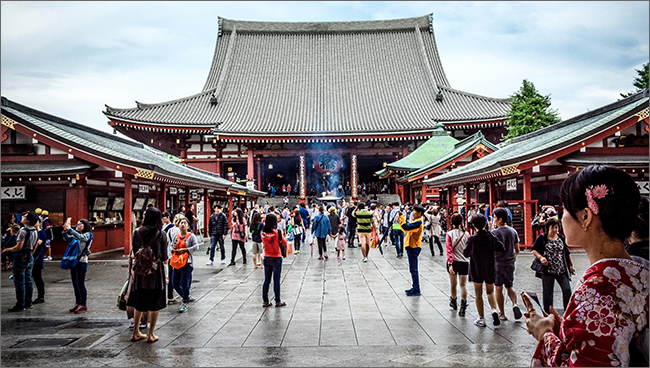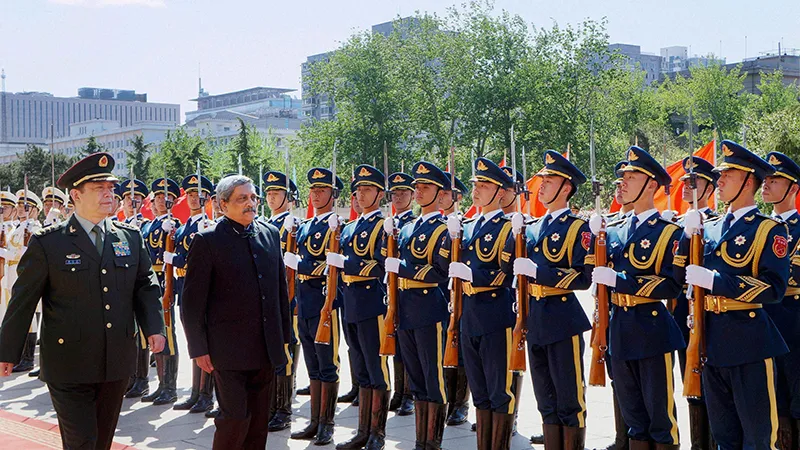< style="color: #0a83cf;">FOREIGN AFFAIRS
India–China military hotline likely
India and China are close to a breakthrough in establishing a hotline between the two military headquarters as part of an effort to improve border management through a new round of confidence building measures (CBMs). “The Chinese have returned the draft of the memorandum on establishing a hotline between the two military headquarters. The issue should be closed within one or two months,” Defence Minister Manohar Parrikar said at a media conference on April 18 in his first visit to China. Chinese Defence Minister Chang Wanquan said the Chinese side is positive toward establishing a hotline between the Chinese and Indian armed forces headquarters and hopes to enhance border exchanges and make joint efforts to maintain peace and stability, the Xinhua News Agency reported on April 19.
Source(s): The Hindu; Global Times, April 19, 2016
India, China agree to stay in touch on Masood issue
External Affairs Minister Sushma Swaraj on Monday raised the issue of China blocking India’s bid to designate Jaish-e-Mohammad chief Masood Azhar as a terrorist at the UN with Chinese foreign minister Wang Yi at a bilateral meeting in Moscow. Indian External Affairs Minister (Sushma Swaraj) raised the issue of listing of Masood Azhar in the UN 1267 Committee and emphasized that as common victims of terrorism, “China and India should cooperate in combating this challenge. It was agreed that the two sides would remain in touch on this matter,” said Ministry of External Affairs spokesperson Vikas Swarup. India had earlier said that it has taken up the issue at a “fairly high level” with China. Meanwhile, at the Russia–India–China (RIC) trilateral meeting, Swaraj sought strong global action against terror networks. She warned the international community that if it continues to adopt “double standards” in dealing with the menace of terrorism, there will be “serious consequences”.
Source: The Hindu, April 19, 2016
China hits back at US over military plane landing on South China Sea reef
China hit back at US criticism over a Chinese military aircraft that landed on a reef in the South China Sea, saying dispatching military aircraft for humanitarian purposes is an international norm. A Chinese navy patrol plane picked up three seriously sick workers on Yongshu Jiao and transported them to Sanya of Hainan Province in south China, Foreign Ministry spokesperson Hua Chunying said. Hua was speaking to reporters when asked to comment on remarks of US Pentagon spokesman Jeff Davis that "it is unclear why the Chinese used a military aircraft, as opposed to a civilian one" to evacuate the workers. "As we all know, the participation of military planes in disaster relief, humanitarian assistance and evacuating civilians is a common practice around the world," Hua said.
Source: Global Times, April 19, 2016
< style="color: #0a83cf;">POLITICS & SOCIETY
China's Xi Jinping takes commander in chief military title
China's President Xi Jinping has taken on a new military title, in his latest move to exert greater control over the armed forces. Mr. Xi is now commander in chief of the military's Joint Operations Command Centre. State media showed him visiting the centre wearing camouflage fatigues. China's foreign policy has become increasingly assertive in recent years, especially on its claims to disputed territories in the South China Sea. Mr. Xi is already General Secretary of the Communist Party, and chair of the Central Military Commission, which manages the People's Liberation Army.
Source: BBC, April 21, 2016
China asks women to be wary of dating foreigners

China is ramping up its warnings against espionage in a week of activities to mark the passing of a National Security Law last year, with state media giving rare details of spy cases and a cartoon campaign saying it is risky to date foreigners. President Xi Jinping has overseen a sweeping revamp of China's security apparatus, aimed at combating both domestic and foreign threats. New security laws have alarmed Western governments amidst a renewed crackdown on dissent in a country where state secret rules are notoriously broad. Since last Friday, when China marked its first national security education day, the government has released reports in state media giving unusual insight into people caught spying for foreigners.
Source: The Telegraph, April 22, 2016
Beijing audition foreign agencies to polish China brand
Five global public relations firms have made pitches to the Chinese government for a potential new campaign, four sources said, as Beijing tries to communicate more effectively with the West.The competition by the leading Western PR companies comes amid intensifying scrutiny of Chinese companies abroad, a crackdown on dissent at home and rising tensions in the South China Sea. China's President Xi Jinping, who has called for Beijing to take a bigger role in a global governance system, has cranked up the state machinery to project China's "soft power" and better communicate China's message to the world since taking power in November 2012.
Source: Reuters, April 21, 2016
< style="color: #0a83cf;">ECONOMY
China seizes biggest share of global exports in almost 50 years
Chinese exporters have found a silver lining in weak global demand by seizing market share from their competitors - good news for China but an expansion that is aggravating trade tensions. China's proportion of global exports rose to 13.8 percent last year from 12.3 percent in 2014, data from the United Nations Conference on Trade and Employment shows, the highest share any country has enjoyed since the United States in 1968. The success belies widespread predictions rising costs for Chinese labor and a currency that has increased nearly 20 percent against the dollar in the last decade would cause China to lose market share to cheaper competitors.
Source: Reuters, April 21, 2016
China's free trade zones pilot reforms for efficiency and openness
China's four pilot free trade zones, located along the country's developed east coast, are spearheading structural reforms to make it easier to start businesses and grant foreign firms more access to the service sector. Three new pilot zones were founded a year ago in Tianjin municipality, Fujian province and Guangdong province. The first free trade zone in Shanghai was founded in September 2013 and expanded to include the Lujiazui financial district, a high-tech park and a development zone. These cities and provinces led the nation during China's three decades of rapid growth. Now they have taken on the role of piloting new reforms in their free trade zones, where local authorities have greater discretion to manage business activities and cross-border capital flow.
Source: Reuters, April 22, 2016
< style="color: #0a83cf;">SCIENCE AND TECHNOLOGY
1st micro–g 3D printer successfully developed in China's Chongqing
A micro–g 3D printer produces a plastic wrench at a research center in southwest China's Chongqing Municipality, April 19, 2016.The Research Center for Additive Manufacturing (3D Printing) Technology of Chongqing Institute of Green and Intelligent Technology announced on April 19 that the first micro–g 3D printer was successfully developed.
Source: Xinhua News Agency, April 20, 2016
Embryos can grow in outer space: Study
Chinese scientists have proved that mammal embryos can develop in outer space in a new study, but they cautioned that there is still a long way to go to ensure the success of human reproduction in the space environment. SJ–10, a retrievable microgravity satellite carrying over 6,000 mouse embryos, was launched on April 6. Photos sent back from the satellite showed that some mouse embryos developed from the 2–cell stage to the blastocyst stage within 64–72 hours after launch, Duan Enkui, a research fellow with the Institute of Zoology at the Chinese Academy of Sciences, told the Global Times, adding that the timing was in line with embryonic development on Earth.
Source: Global Times, April 18, 2016
< style="color: #0a83cf;">BIBLIOGRAPHY
M K Bhadrakumar, “Why making Masood Azhar the litmus test of India's ties with China is not a great idea”, Scroll.In, April 16, 2016
James Porteous, “China’s tech firms jumped on sports bandwagon – but can they figure out how to get fans to pay up?” South China Morning Post, April 17, 2016
Bonnie Cao, Ye Xie and Saijel Kishan, “China’s debt-fueled economy ‘eerily’ echoes U.S. on brink of 2008 crisis, George Soros warns”, The Financial Post, April 21, 2016
Elizabeth Wong, “Ten Years dares to be different – and daring is not a dirty word”, South China Morning Post, April 21, 2016
< style="color: #0a83cf;">Contributors:
- Pratnashree Basu
- Swagata Saha
The views expressed above belong to the author(s). ORF research and analyses now available on Telegram! Click here to access our curated content — blogs, longforms and interviews.





 PREV
PREV

